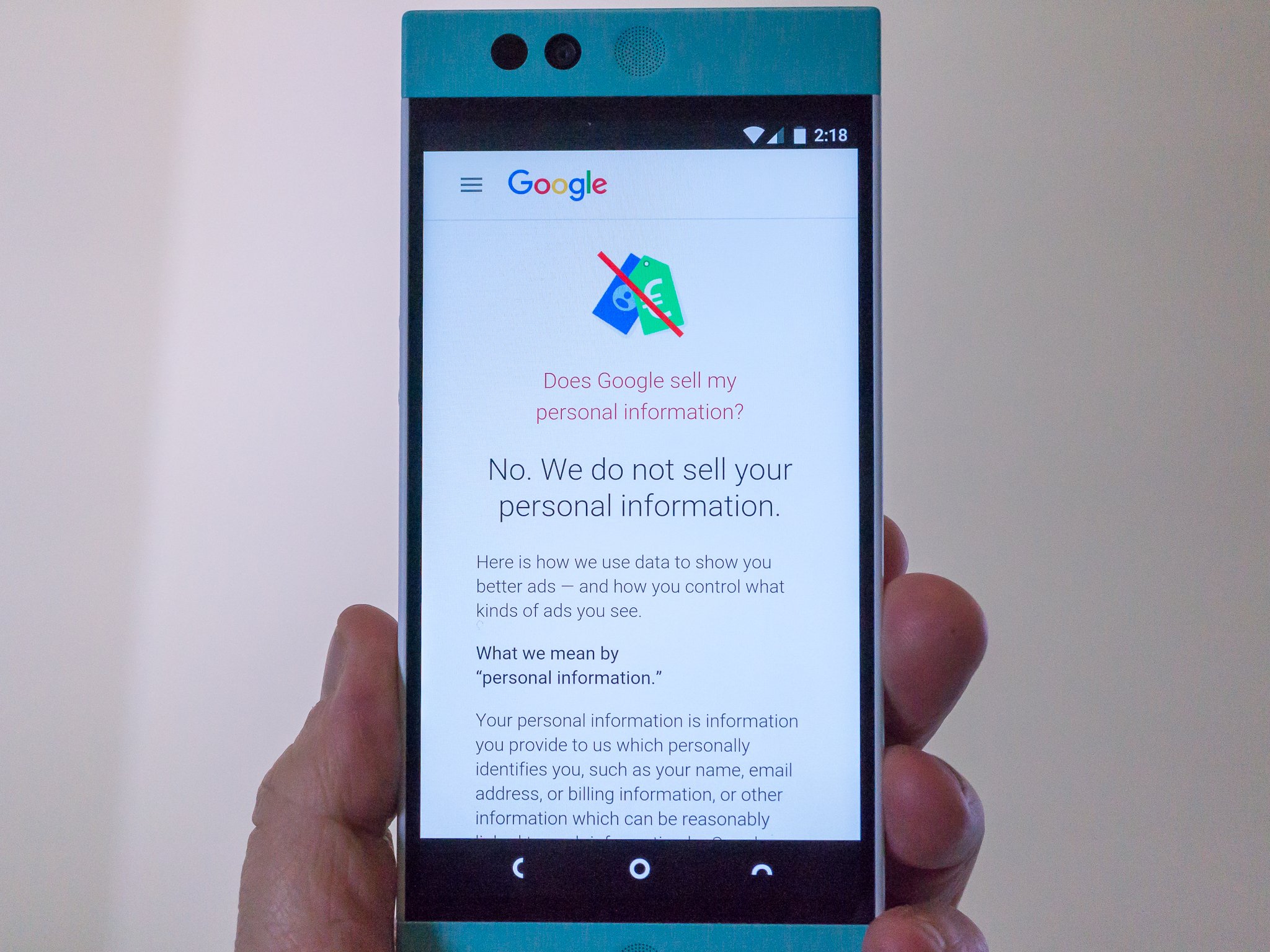Our personal information is now currency and we should spend it more wisely

Get the latest news from Android Central, your trusted companion in the world of Android
You are now subscribed
Your newsletter sign-up was successful
I like to talk a lot about security and privacy. It matters to me, and I place the same astronomical value on my personal data that Google, Apple, Microsoft, and Facebook do. Your data has the same value, and I think we all need to be aware of how our data is used by the people who use it because it's so valuable.
Big tech companies are able to convert our data into dollars and pounds and euros. It becomes their responsibility to collect it the right way, store it the right way, and protect it at any cost. When those companies blunder, because we all do from time to time, the way they handle the issue(s) and what they change to prevent it from happening again in the future is very important. This is why I'll never use another Netgear router without looking at the software, or set up a Yahoo account. If you want to have my valuable data, you need to take good care of it.
Our bits and bytes are now equivalent to dollars and cents. Be as careful with your data as you are with your money.
It's also a given that "accidents" will happen when it comes to storing user data, as will dumb ideas. Evernote serves us a classic example. The original idea of letting actual humans read your private data in any capacity needed a lot more explanation than they provided, so the idea seemed absolutely stupid. They decided to change course and do the right thing after a good amount of kick back and pressure from press and users. We kicked, because they didn't make us feel like they would take proper care of our valuable private data. There was one thing in the whole mess that was great, even if it didn't make up for the things that weren't as great — Evernote didn't try to hide what they were going to do and let everyone know about a big change in advance.
I'm not a user of their services (I like simple notes and reminders versus the do-everything that is Evernote) but I would use Evernote's service if I needed to. Not because I want a human to read my notes, but because they were transparent. They had a change in the works and told everyone in advance so we could take all our data and leave.
Transparency is also part of the reason I, and many others, use Google services.
Your data is part of the reason companies like Google or Microsoft are so successful and have billions of dollars.
Google harvests a scary amount of my (and your) personal data. They know where I am, they know what I buy, they know what bank I use and which airline I prefer. They know about my family — where my kids went to school or where my wife works. They know everything. And they aren't alone. Look at the phone and/or computer you use, and see what things that connect to the internet are installed on it. If any of those companies are big enough and can afford it, they are taking the same types of data in one way or another.
The amount of personal data and the kind of data Google takes — and Apple, and Microsoft and Facebook, and Amazon, and you get the picture here — makes how they handle it and the way they let you know the most important thing about them.
Get the latest news from Android Central, your trusted companion in the world of Android
Everything is based on a barter system. I trade my data for a service or product. I look at what data a company wants, how they collect it and what they will do with it once they have it. Then I look at what they are offering. This way, I can decide if the trade is worth it to me. Being able to say "OK Google what's my day like?" and getting a ton of pertinent information from my phone or a Google Home is worth letting a machine look at every word and number that I ever typed online, because I have a very clear and concise document that explains exactly how it's collected, stored, and used. I trust that my data will be kept safe, and if something ever did happen things would be handled in a way I can approve of. I'll grant my trust in advance, and give them the opportunity to use my life's data in exchange for a service I like.
Make sure the things you get in return are as valuable as the data you pay for them with.
I trust Apple and Microsoft the same way. I do wish some of their privacy policies were a bit clearer and less vague, but they do a good job covering the things I'm looking for in general. But I don't use Cortana or One Note, or Siri because that extra bit of my data they need is worth more to me than the duplication of services I get from Google Now and Assistant. Sorry, Microsoft and Apple, you don't get to read my keystrokes and listen to my voice. Not because I don't trust either company, but because I don't need the services either is offering. Millions of others do, and I think it's great that they take care of user's private information. On the flipside, I'll don't trust Facebook because they like to play fast and loose with their privacy policies and surely the things they have been caught doing are just the tip of an iceberg of bad practices.
You need to decide who you trust in the same way. That's not easy. But it's important because you're handing them your data each and every day. Decide who gives you the most in return for the data you pay them with, look into what they do with it and how they keep it safe. This is a discussion we should be having more often.
How we spend this digital currency is a discussion we should be having more often.
Of course, you can also feel that nobody needs your data. I can't say I blame you if you follow a tin-foil hat and scorched earth policy when it comes to being online. And that's the only way to stop the internet giants from taking what they want from you. But I will say that folks who feel they have nothing to hide and just don't care need to rethink their position. I don't have anything to hide either, but I don't want someone from an internet services company to come into my house and rifle through my underwear drawer unless they have something to give me in return.
Google is worth billions of dollars, and the bulk of what made them all that money is our user data. We all need to realize how valuable our information is and that data is now currency. Then we need to make a conscious effort to spend it wisely.
Update August 2017: This post was previously published in December of 2016. The information is still important and relevant.

Jerry is an amateur woodworker and struggling shade tree mechanic. There's nothing he can't take apart, but many things he can't reassemble. You'll find him writing and speaking his loud opinion on Android Central and occasionally on Threads.
